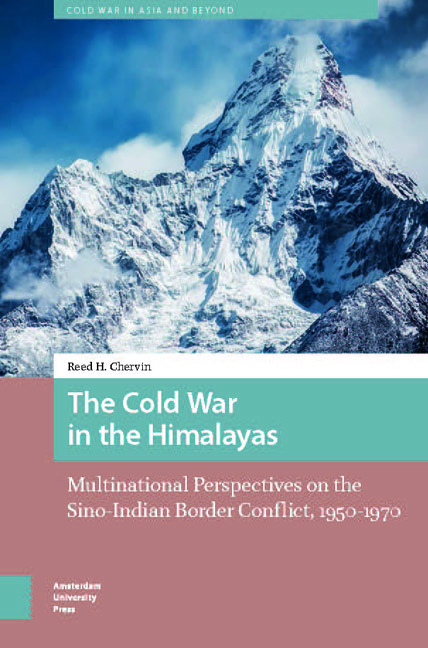 The Cold War in the Himalayas
The Cold War in the Himalayas 2 - Immediate International Fallout
Published online by Cambridge University Press: 16 April 2024
Summary
Abstract
Chapter 2 addresses how the international community reacted to the war. India became aware of its security vulnerabilities and approached the West for military aid. The section that follows argues that the United States viewed the Sino-Indian War as a microcosm of the global struggle between democracy and communism and therefore agreed to provide moral and material support. The Commonwealth followed suit. Meanwhile, the People's Republic of China tried to salvage its international image by pandering to countries such as India's neighbors. The final two sections interrogate views from “other Chinas” (i.e., Taiwan and Hong Kong) and the Soviet Union.
Keywords: international community, “other Chinas,” material support, international image
During and immediately after the border war, India and China made overtures toward the international community to secure moral and material support. Western governments sympathized with India and rendered assistance in the form of equipment, advisors, and informal alliances. The intersection of national interest with rhetoric of upholding democracy in Asia unified the United States and Commonwealth. Regarding India as a domino that they could not let fall strongly influenced foreign policy in the West long after the shock of the Sino-Indian War had faded. At the same time, a desire to reduce financial strain and defense commitments caused these countries to “pass the buck” among one another. The Soviet Union professed neutrality, and Pakistan rebuked the West's support of its nemesis. Members of government and the public sometimes challenged these “official” views. Nevertheless, mainstream views and policies prevailed, shaped by geopolitics of the Cold War.
India's Path Forward
Indian diplomat C. V. Narasimhan, Chef de Cabinet in the United Nations, spoke angrily to that body, expressing shock at both the Chinese assault in 1962 and the absence of support from the Third World. “When Nehru and India needed their nonaligned friends most, where were they? Where was Sukarno? Where was Nasser? Where was Tito? Not a single word of support or even sympathy from them.”
- Type
- Chapter
- Information
- The Cold War in the HimalayasMultinational Perspectives on the Sino-Indian Border Conflict, 1950-1970, pp. 71 - 116Publisher: Amsterdam University PressPrint publication year: 2024
